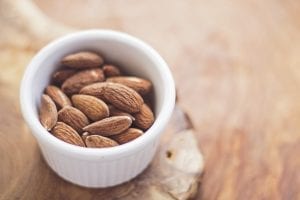21 Wholesome Facts about Healthy Eating
Would you like to feel great, have more energy, improve your health, and boost your mood? If you do, then healthy eating is your answer!
A healthy nutritious diet can boost your immune system and help fight off virus and disease. Eating a healthy diet is not about severe restrictions, depriving yourself of the foods you love, or staying unrealistically thin. It’s about the importance of your overall dietary pattern.
Here’s a stack of interesting facts about healthy eating.
1. It’s all about going natural.
A healthy diet should be all about replacing processed food with real food whenever possible.
Eating food the way nature made it can make a huge difference to the way you think, look, and feel.
2. Healthy eating depends on different categories to what we eat.
We all need a balance of protein, fat, carbohydrates, fiber, vitamins, and minerals in our diets to sustain a healthy body.
You need to select the healthiest options from each category of food, rather than eliminate certain categories of food from your diet.
3. Why is protein so important?
Protein gives you the energy to get up and keep going, supporting your mood and cognitive function. As we age, many of us need more high-quality protein.
However, too much protein can be harmful to people with kidney disease.

4. Fats aren’t all bad.
While bad fats can ruin your diet and increase your risk of certain diseases, good fats protect your brain and heart.
Healthy fats such as omega-3 are vital to your physical and emotional health.
5. Good fats can help you feel fantastic!
Including more healthy fat in your diet can help improve your mood and boost your well-being.
6. Fiber is extremely important.
Eating foods high in dietary fiber like grains, fruit, vegetables, nuts, and beans can help you stay regular and lower your risk for heart disease, stroke, and diabetes.
7. Top up that calcium.
Lack of calcium leads to osteoporosis, contributes to anxiety, depression, and sleep difficulties.
It’s vital to include calcium-rich foods in your diet, limit those that deplete calcium. To help calcium do its job, get enough magnesium and vitamins D and K.
8. Carbohydrates are complex and often get a bad reputation.
Carbohydrates, one of your body’s main sources of energy come from complex, unrefined carbs like vegetables, whole grains, fruit rather than sugars and refined carbs.
You can prevent rapid spikes in blood sugar, fluctuations in mood and energy, and a build-up of fat, especially around your waistline by cutting back on white bread, pastries, starches, and sugar.
9. Don’t completely get rid of everything you love.
When switching to a healthy diet, you never have to change everything all at once.
Keeping your goals modest can help you achieve more in the long term without feeling deprived or overwhelmed by a major diet overhaul.

10. Eating healthily is a marathon, never a sprint.
Think of planning a healthy diet as several small, manageable steps, like adding a salad to your diet once a day.
To set yourself up for a successful healthy diet, keep things simple. Instead of being overly concerned with counting calories, think of your diet in terms of color, variety, and freshness.
11. Go natural – again, this can’t be stressed enough.
Avoid packaged and processed foods and include more fresh ingredients whenever possible.
12. Switching things up is pretty easy.
For a healthy diet, switch fried chicken for grilled salmon, switch animal fats for refined carbohydrates.

13. Check the tins.
Read the labels, because it’s important to be aware of what’s in your food.
14. Stay hydrated!
Drink plenty of water. Water helps flush our systems of excess products and toxins.
15. It’s hard to keep things in moderation – but it’s key.
Moderation is important to any healthy diet, so eat only as much food as your body needs.
Eating bacon for breakfast once a week, for example, could be considered moderation if you follow it with a healthy lunch and dinner.
Try not to think of certain foods as “off-limits.” Reduce portion sizes of unhealthy foods and don’t eat them as often. Think smaller portions!

16. Eat slowly and mindfully.
Take your time, eat slowly, and stop eating before you feel full.
17. Solo dining isn’t always good for you.
Eat with others – eating alone in front of the TV or computer, often leads to mindless overeating.
18. Don’t let food become a crutch.
Stop turning to food to relieve stress or cope with unpleasant emotions such as sadness, loneliness, or boredom.

19. It’s all about long-term health.
Eating healthy can radically reduce your chances of developing heart disease and cancer.
20. However, you’ll boost your levels in the short-term, too.
A good diet can improve all aspects of life, from brain function to physical performance.
There is no doubt that a healthy diet will help you perform better if you participate in exercise or sports.
21. Whole foods are so important!
You should aim to consume whole foods at least 80-90% of the time.
The term “whole foods” generally describes natural, unprocessed foods containing only one ingredient. Whole foods have fewer calories and more nutrients per serving than processed foods.
FAQs about Healthy Eating
What are some of the healthiest foods you can eat?
Anything green tends to be a great pick - but consider salmon, plain yogurt and sweet potatoes to be amazing dinner-boosters.
What’s the healthiest fruit?
Oranges are regarded as some as the healthiest fruit on the planet as they are jam-packed with vitamin C - they are pretty much superfoods.
What foods should I never eat?
You should always make time for your favorite food, however, try and avoid processed treats and sweetened cereal.
Do you know any fun facts about healthy eating? Share them in the comments below!
Further reading:
https://factcity.com/tag/diets/
This page was last modified on July 28, 2023. Suggest an edit










